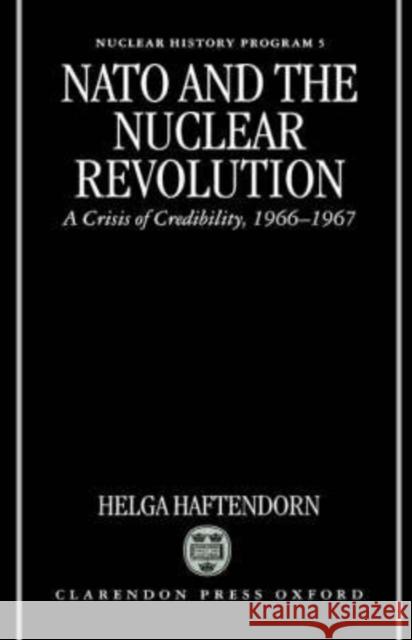NATO and the Nuclear Revolution: A Crisis of Credibility, 1966-1967 » książka
NATO and the Nuclear Revolution: A Crisis of Credibility, 1966-1967
ISBN-13: 9780198280033 / Angielski / Twarda / 1996 / 464 str.
This book deals with the crucially imprtant NATO crises of 1966-67--a period when a number of issues which had been developing for some time within NATO came to a head. It concentrates on the intensive reorientation of NATO strategy from the departure of France from the integrated military command to the adoption of Flexible Response and the Hermel report on the Future Tasks of the Alliance.
The author sets out the diplomacy of this period in a broader historical and theoretical context and provides four detailed, and related, case studies. The first case deals with problems of doctrine stemming from American determination to reduce NATO's dependence on what it believed to be incredible nuclear threats and the European resistance to any diminution of the US nuclear guarantee. The second case considers the attempt to ease European concerns about dependence on American nuclear policy. The third examines the programmatic consequences of the strategic shift. Finally, there is an analysis of the process by which the Harmel Report was set up to establish political guidance for the Alliance in the context of the French withdrawal and the move to detente.











